Using blast-resistant buildings in the petrochemical industry keeps people safe and lets businesses stay compliant with all relevant regulations.
The petrochemical industry plays a significant role in the global economy. It's responsible for creating the materials we use to grow food and make clothing, building materials, pharmaceuticals, vehicles, and more. Because of the safety risks involved in manufacturing these chemicals, blast resistant buildings are a crucial component of petrochemical facilities.
The American Fuel and Petrochemical Manufacturers (AFPM) defines a petrochemical facility as one that "transforms crude oil and natural gas into chemicals using sophisticated engineering, heat, and high pressure." The six primary petrochemicals are acetylene, benzene, methane, ethane, propane, and hydrogen, which go into making products as diverse as adhesives, pharmaceuticals, fertilizers, and rocket fuel and powering heaters, refrigerators, and farm equipment alike.
Petrochemicals and their processes create a potentially dangerous work environment because these materials are combustible and often require high heat during processing. As a result, the U.S. Occupational Safety and Health Administration (OSHA) has set Process Safety Management of Highly Hazardous Chemicals (PSM) standards. These mandate that equipment used in the petrochemical industry be stored safely in blast resistant buildings and that blast resistant buildings are also provided to workers when they are at risk of injury or illness.
In the U.S. alone, the petrochemical industry employs more than 10,000 people and has increased an average of 1.7% annually over the last five years. While the US Bureau of Labor Statistics collects data only on the larger industry that encompasses "Petroleum and Coal Products Manufacturing," their data from 2020 shows that this industry had a work-related illness and injury rate of 1.2% among workers.
While new technology and worker protection guidelines have brought recordable incident rates down across industries, the petrochemical industry still suffers from some of the most catastrophic workplace incidents. According to the CDC, the fatality rate for oil and gas workers has been seven times higher than in other industries. Risks include fires, explosions, and exposure to dangerous chemicals.
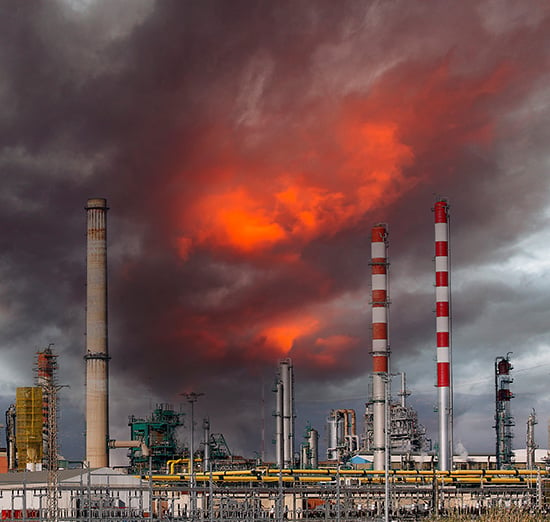
Fires are a significant cause of injuries in the petrochemical industry because many materials on site are flammable and combustible liquids and vapors. This can result in a sudden, intense flash fire, a dispersed and destructive pool fire, or a white-hot jet fire that can burn up to 2000 degrees F.
In 2021, a quickly spreading flash fire at a chemical plant near Lake Charles, Louisiana, ultimately injured 22 people. Six injuries, such as burns and chemical inhalation reactions, occurred immediately at the scene, while the rest became apparent later. The company later had to pay four workers $139K in OSHA fines. While the chemical plant was guilty of multiple safety violations, the fire and subsequent explosion occurred during preventative maintenance.
Even in well-protected sites, weather events like lightning strikes and earthquakes can damage equipment and lead to unexpected chemical leaks that fuel fires. That's just one of the reasons that blast resistant buildings are designed to shield workers from harm.


Workers can also be exposed to chemicals by inhalation or contact with the skin or eyes. Exposure to petrochemicals can cause immediate asphyxiation and chemical burns. In the long-term, workers may also suffer from allergies, ulcers, infertility, cancer (specifically leukemia), brain and nerve damage, and liver and kidney disease.
Both acute and chronic exposure to petrochemicals can also cause a wide variety of symptoms such as headaches, blurred vision, and bouts of nausea that can last from hours to years, depending on the circumstance.

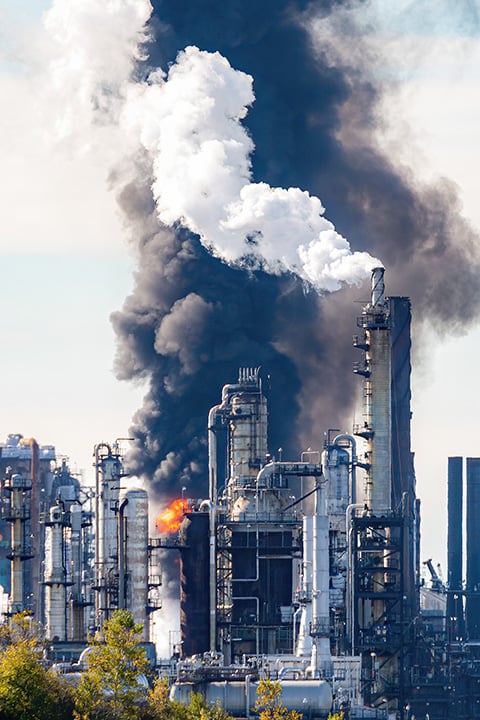
While explosions at petrochemical facilities are relatively rare, they can be devastating and cause widespread damage.
On November 27, 2019, an explosion at a petrochemical plant in Port Neches, Texas, produced a blast that was felt up to 30 miles away, damaged surrounding homes, and forced the evacuation of everyone within a half-mile radius around the plant. Several employees were injured, and a second blast happened 13 hours later, followed by several smaller explosions and a fire that burned for days. Since the blast involved the petrochemical 1,3-Butadiene, it produced a health hazard for everyone on-site as well as the surrounding community. It was the largest dollar loss fire or explosion in the United States in 2019, costing roughly $1.1 billion. The results can be fatal for workers on the job site during an explosion. On April 11, 2022, an explosion at a chemical plant in Gujarat, India, was fatal for six workers.
Blasts don't have to be deadly to be devastating. Depending on a person's proximity to the blast, an explosion can rupture eardrums, cause blunt force trauma from flying debris, or throw a body through the air. These injuries are unrelated to any fire that a blast may cause. During an explosion, even light objects become projectiles, and buildings damaged or under construction can easily crush workers if they can't stand up to the force. Overpressure as low as 1 - 2 psi can cause windows to shatter and cause lacerations and gouges, while a 15 psi blast can damage a person's lungs.
Blast resistant buildings protect people from these injuries, and it's crucial to get an accurate psi rating on your building that matches the potential destruction that can result from a petrochemical blast.

Petrochemical facilities require a variety of safety measures to prevent and protect people from hazardous emissions, equipment malfunctions, machinery accidents, falls, and fires. A blast resistant building is at the top of the list for site managers. An adequately tested building from a company with a safety track record, such as RedGuard, provides physical and legal protection. RedGuard's blast resistant buildings can be constructed to comply with API procedures and other guidelines, limit a company's liability and protect its property and human assets.
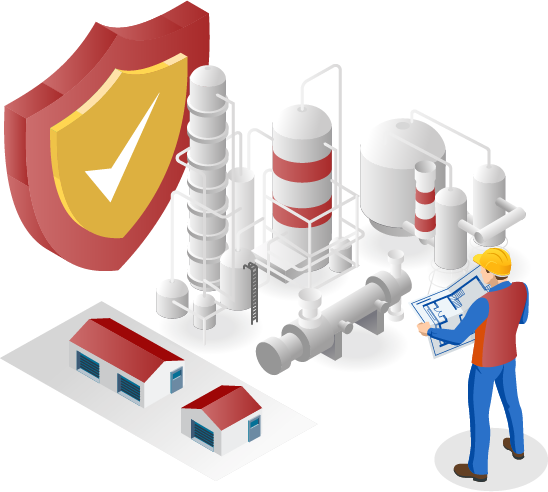
OSHA does not have standards for blast resistant buildings, but they do require a Process Hazard Analysis every five years. However, the American Petroleum Institute’s API RP 752 and API RP 753 procedures and the American Society of Civil Engineers (ASCE) Petrochemical Energy Committee guidelines cover best practices for constructing and installing blast resistant buildings at petrochemical sites.
In addition to our buildings, RedGuard's engineering team can help keep workers safe by helping petrochemical companies coordinate a third-party Facility Siting Study. RedGuard can also help determine what mitigation options are best after receiving the results of their Facility Siting Study.

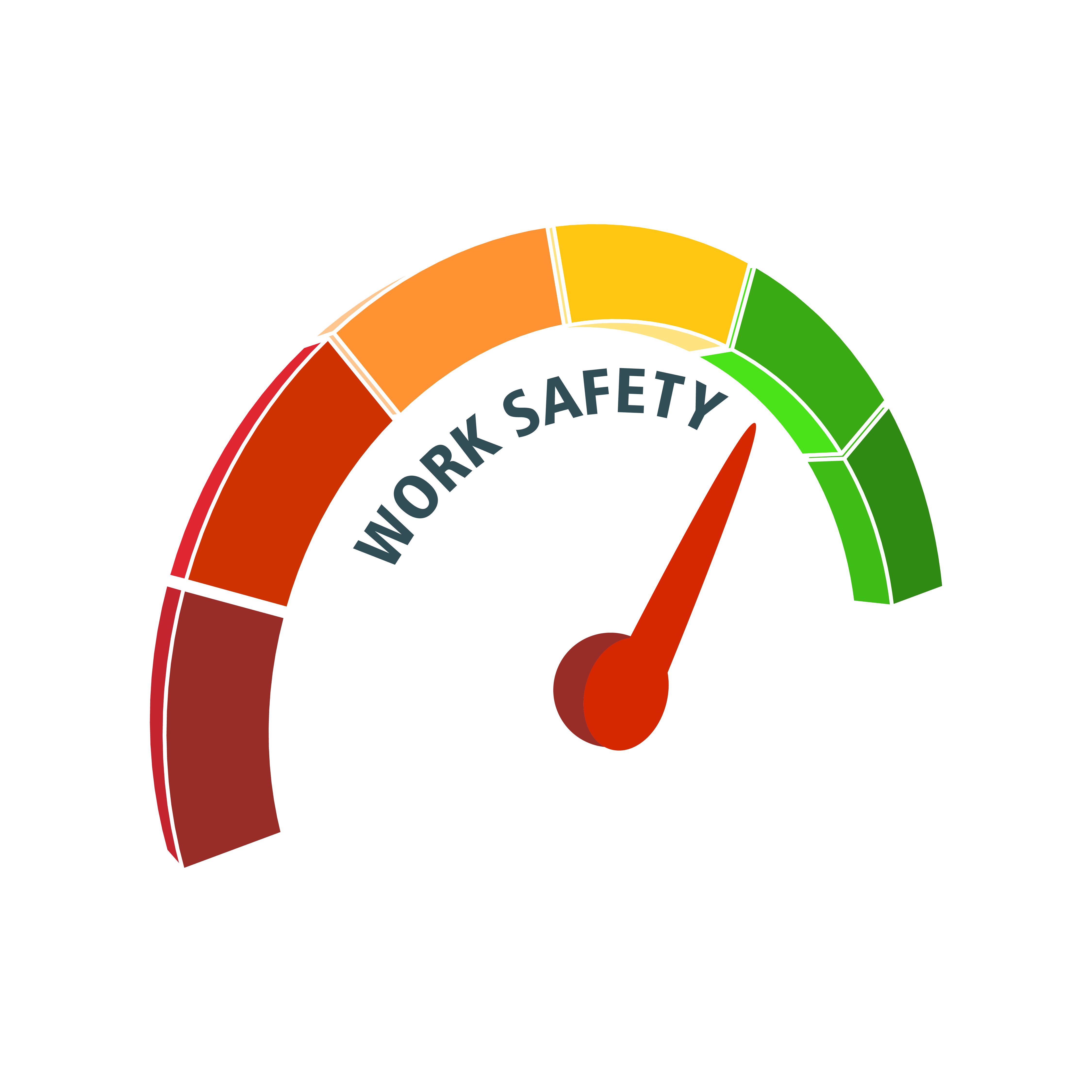
Employees are a company's greatest asset, so compliance is more than just a legal and financial matter. A safe worksite helps give workers peace of mind, feel valued by a company, and work harder on their jobs without worrying about how they might protect themselves if the unthinkable happens.
There will always be some risk on a job site in the petrochemical industry, but good business ethics and worker productivity go hand in hand. A 2020 study found that working conditions influence not just how hard employees work but also costly turnover rates, absenteeism, and healthcare costs.

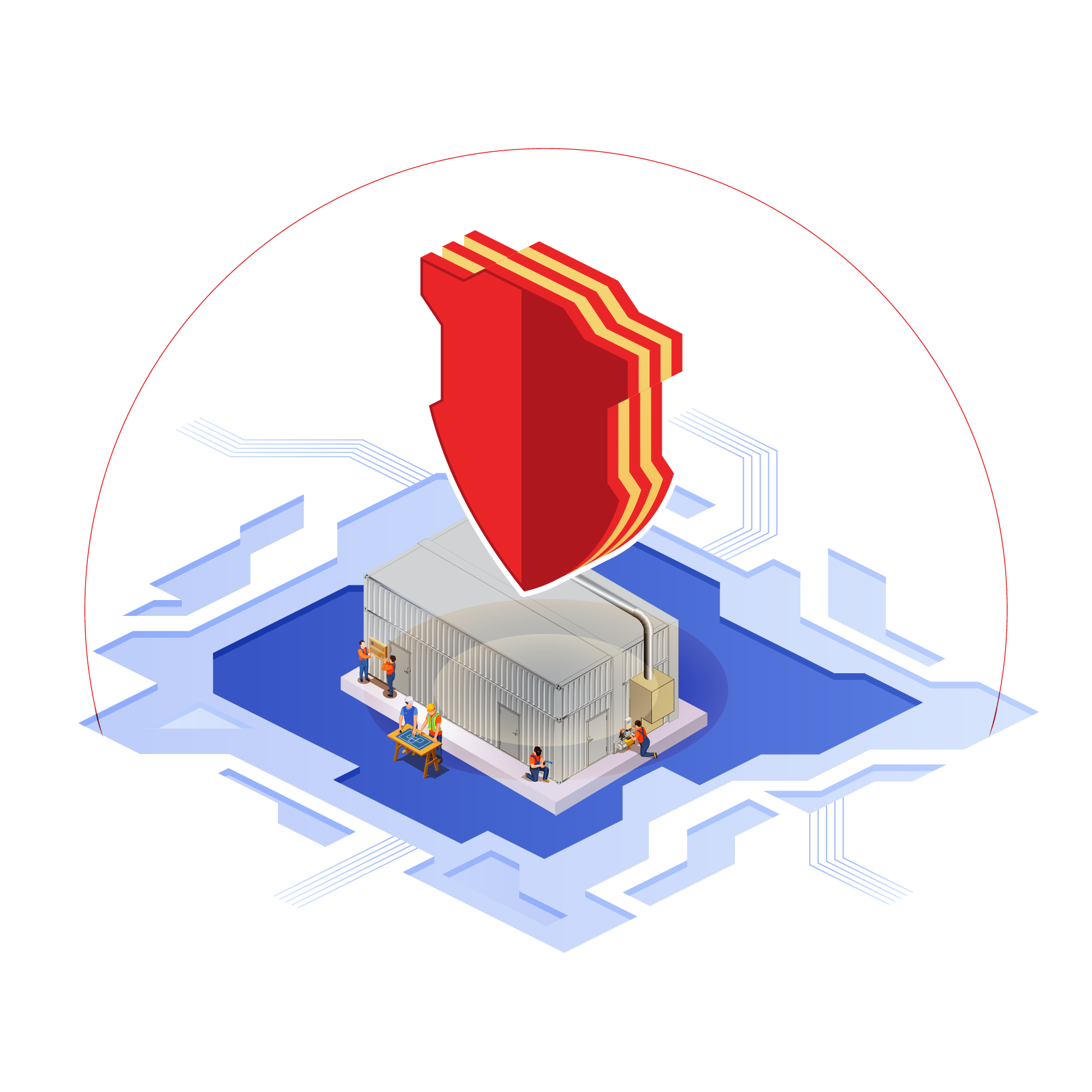
When companies don't do all they can to protect workers, they can be found liable for injuries resulting from an array of accidents and malfunctions. Blast resistant buildings can help petrochemical companies limit their liability and reduce their risk of paying hefty compliance fines.
Of course, when workers stay healthy, companies save money on medical and worker's compensation bills and lawsuit payments.


Petrochemical explosions don't just harm workers; they can damage costly infrastructure and machinery. Replacing them and ensuring they're up to code robs a company of another primary resource - time.
And as we saw in the 2019 Port Neches explosion, blast events in the petrochemical industry don't stay confined to a job site. That's why putting another layer of safety between dangerous materials, and the community is crucial. And the physical damage a company does to an area can also have severe reputational damage.

Petrochemical companies can be at a slight disadvantage without strict guidelines to abide by in the construction of their blast resistant buildings. In many cases, an organization must hire an outside team to inspect their site, make recommendations, and ensure the final product meets the workers' needs.
Research is crucial to getting this right, and companies want to ensure that a team isn't just recommending their most expensive product. That's why it's vital to know as much about blast resistant buildings as possible before talking to the companies that sell them.
Some critical aspects of the research process include:
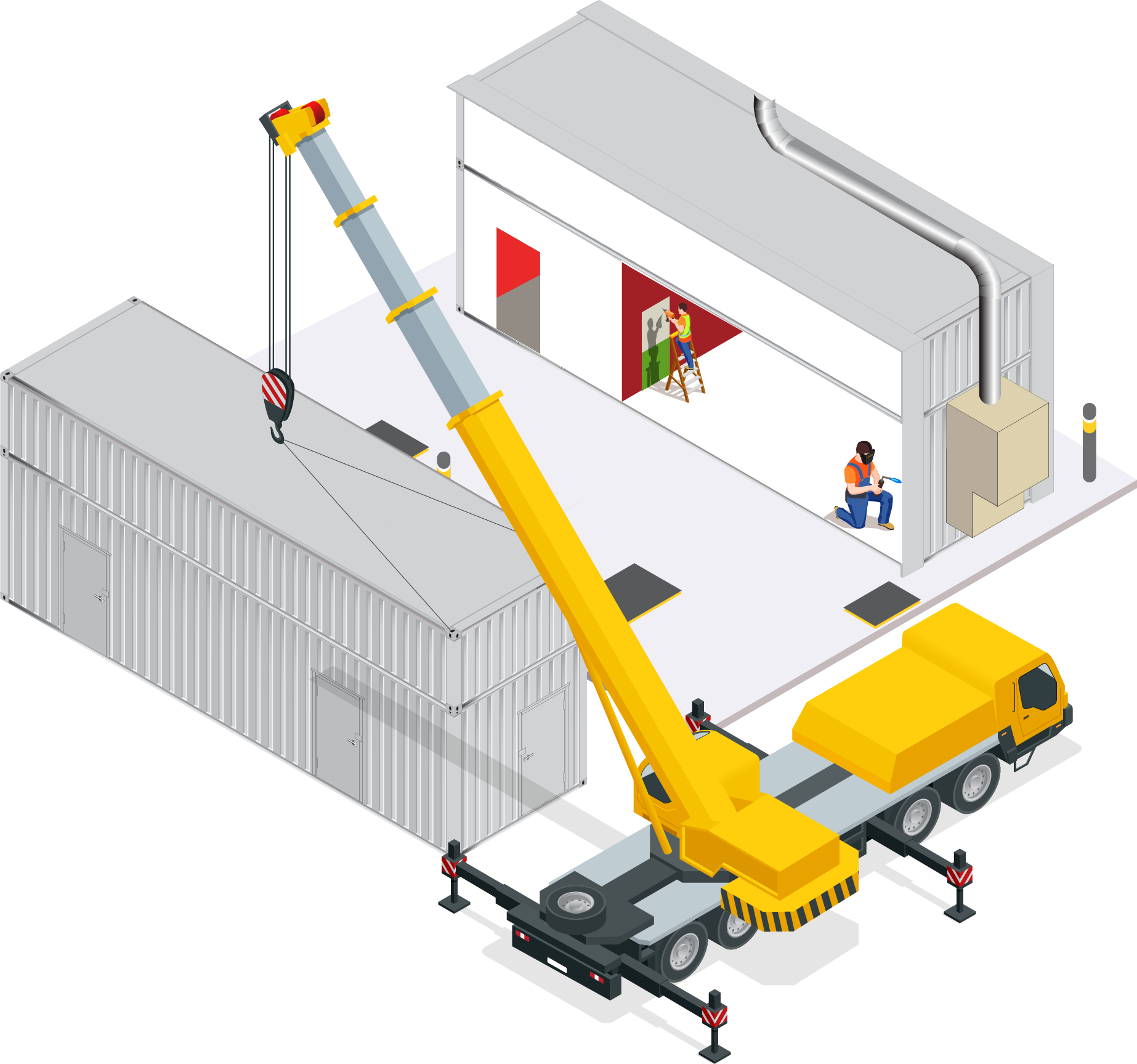
The structural integrity of a blast-resistant building is paramount. In the petrochemical industry, buildings must be robust and carefully constructed to withstand chemical blasts and fires and keep people inside safe from flying debris.
Among the first choices companies have to make is whether to choose a steel or a concrete blast resistant building. Steel comes out on top in each category, from aesthetics to design flexibility. But nowhere does it succeed more than in terms of strength.
Steel has a higher strength-to-weight ratio and is eight times stronger than concrete. Steel's tensile strength ranges from 58,000 psi to 435,000 psi. Unlike concrete, steel does not add excessive weight to a building's foundation, making it safer to be around on a job site. It also remains strong during tension and compression and can bend without cracking or breaking. Steel's power also lies in its convenience. It is easier to transport and construct a steel blast resistant building. It is more cost-effective and eco-friendly since 85% of the world's available steel is recycled, including 99% of structural steel after demolition. Concrete structures cannot be recycled.
In the petrochemical industry, steel must be strong and stand up to high temperatures to withstand fire and explosions. The best protection against these hazards is steel structures with modifications such as intumescent coatings that insulate whatever is inside the building.

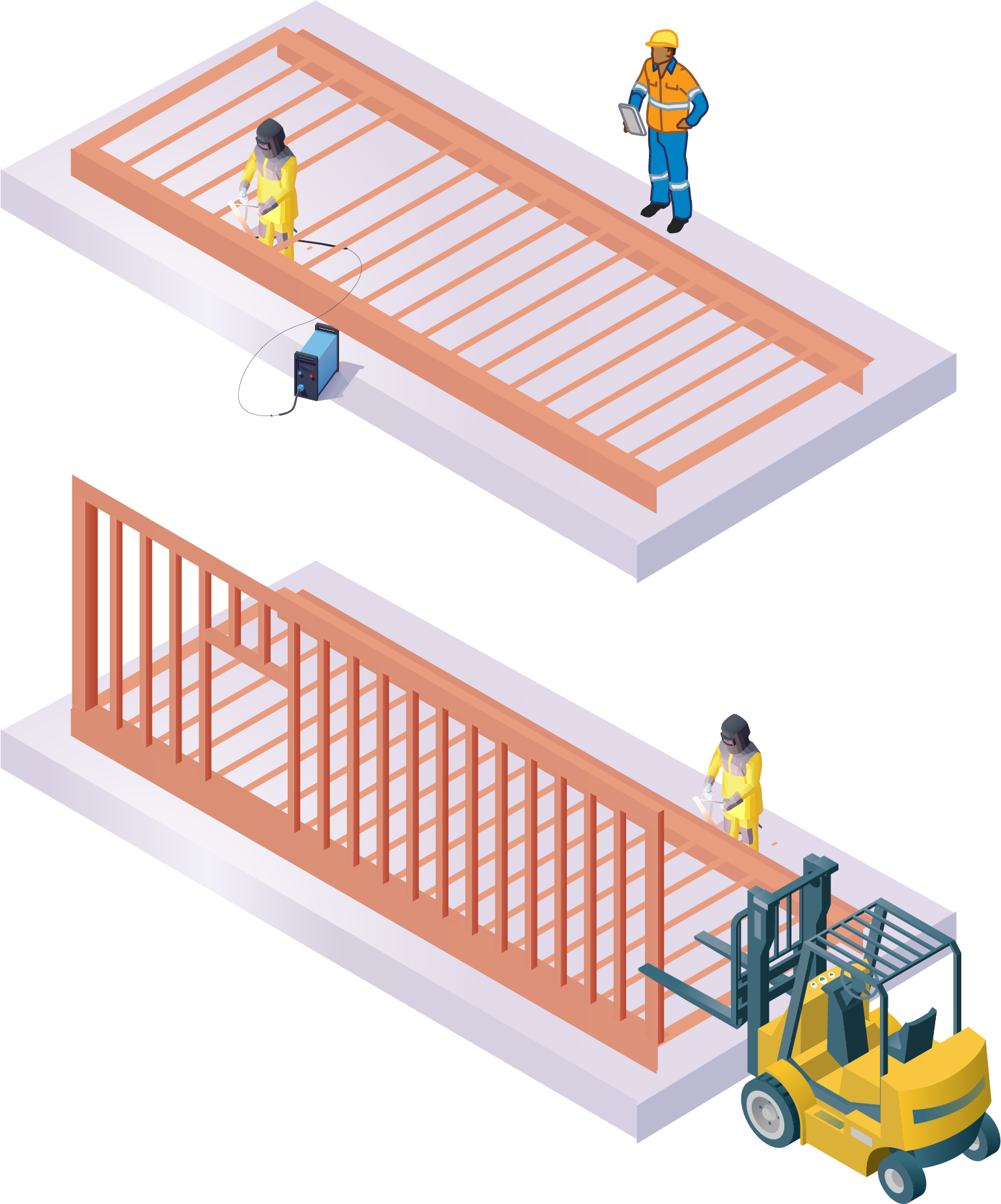
Busy job sites can't always halt work to wait for the construction of a blast resistant building. That's what makes RedGuard's portable, modular blast resistant buildings so business-friendly.
The main components of RedGuard's blast resistant modules are prefabricated and ready for construction. Clients can choose a customized design, and all the work begins off-site. As a result, businesses don't lose time as materials come in bit by bit. And once on-site preparation and construction are completed, the building is ready for use. There's no time lost waiting for a material like concrete to cure, so there's little disruption or lost productivity, making steel blast resistant buildings a better overall investment.


The OSHA 29 CFR Part 1910.119 Process Safety Management regulation (PSM) requires that petrochemical refineries complete facility site studies. RedGuard works with a third-party engineering firm to offer the Facility Siting Studies that ensure their customers comply with regulations and meet industry guidelines.
Petrochemical companies can avoid conflicts of interest by working with RedGuard and its third-party engineers to inspect the site and ensure the safest work environment possible.
These outside engineers have nothing to gain by overlooking issues or delaying mitigation of dangerous situations. When lives are at stake, an unbiased review is a necessity.

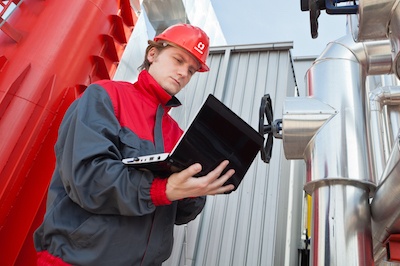
RedGuard's focus on concept, design, build, installation, and operation has already earned the respect of the global oil and gas industry as a leading provider of modular safe spaces. Whether a petrochemical company needs a 50 sq. ft. modular building or a 15,000 sq. ft. structure, RedGuard can have a unit manufactured off-site, transported to the project location, and assembled with skill in a timely fashion. We also guarantee our products will stand up to independent scrutiny.
Companies in the petrochemical industry need robust and reliable buildings that withstand some of the strongest and most potentially deadly blasts and fires. Too many lives have been lost to industrial accidents. RedGuard's blast resistant modular buildings provide the strength of steel and the evidence that they can withstand large blasts. A blast resistant building's job is, first and foremost, to save lives. Investing in the right company that uses the best material can be a life-or-death decision, which is why RedGuard is so passionate about transparency in serving the petrochemical industry.
RedGuard tackles the unique needs of the petrochemical industry and understands its specific challenges. We have worked hard to develop a strong steel, modular solution that keeps people safe, businesses operating and allows industry leaders to stay compliant with all relevant regulations that keep worksites safe. RedGuard's blast resistant buildings can be a reliable way of meeting and exceeding safety guidelines, preventing safety hazards, and protecting the lives and livelihoods of workers to improve company loyalty and productivity.

While explosions at petrochemical facilities are relatively rare, they do occur and are often devastating.
A critical part of mitigating risk in the petrochemical industry is the presence of blast-resistant buildings and barriers to protect workers.
Highly combustible materials, coupled with heat, qualify the nature of this process as high risk. This means that a petrochemical facility has to take deliberate action to protect its employees.
RedGuard tackles the unique needs of the petrochemical industry and understands its specific challenges. We have worked hard to develop a strong steel, modular solution that keeps people safe, business’ operating and allows industry leaders to stay compliant with all relevant regulations that keep worksites safe.
RedGuard tackles the unique needs of the petrochemical industry and understands its specific challenges. We have worked hard to develop a strong steel, modular solution that keeps people safe, business’ operating and allows industry leaders to stay compliant with all relevant regulations that keep worksites safe.
Your safety partner in threat mitigation for hazardous areas, providing safe spaces through customizable, scalable, modular buildings. The industry leader in blast-resistant buildings.